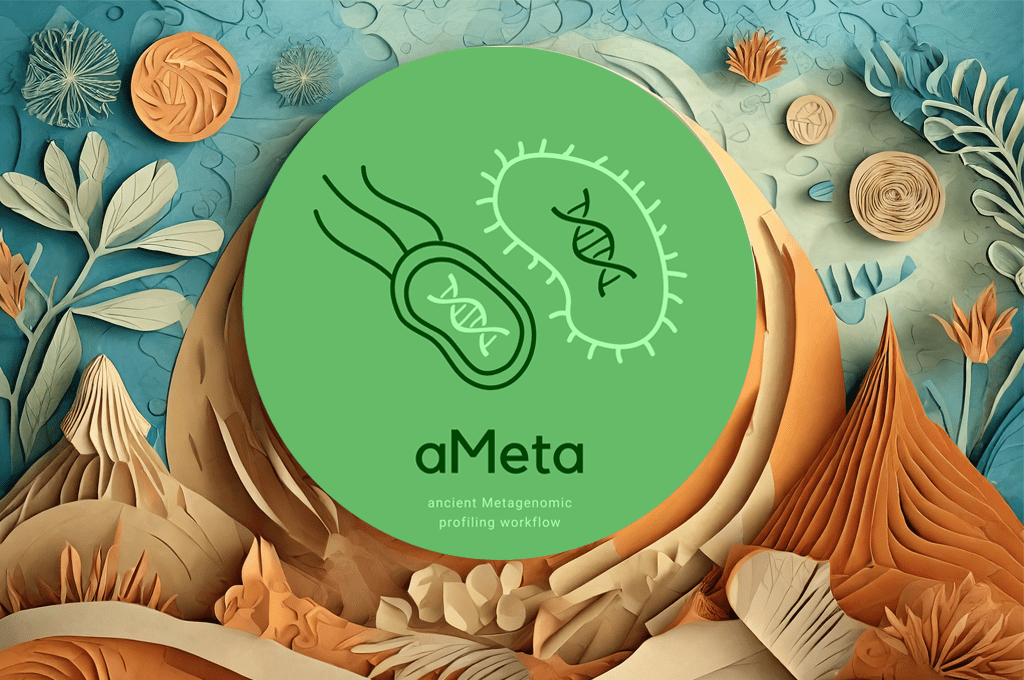aMeta: metagenomic profiling workflow tool for aDNA
The analysis of microbial data from ancient samples is taking an increasingly more important role in uncovering insights into ancient environments, lifestyles, and diseases. However, a significant challenge in this field is the high error rates in ancient metagenomic analysis, coupled with limited computational frameworks.
To address these challenges, aMeta, a recently proposed metagenomic profiling workflow for ancient DNA (aDNA), aims to minimize false discoveries and reduce the computational memory required for accurate analysis. Benchmarking against a current state-of-the-art workflow (HOPS) using simulated and real data demonstrates aMeta’s potential.
“Big metagenomic databases require considerable computational resources, which are currently not available in many labs, therefore microbial detection accuracy may be compromised. aMeta attempts to fit ancient metagenomic data to limited computer memory without sacrificing analysis accuracy,” says Nikolay Oskolkov, Bioinformatician at National Bioinformatics Infrastructure Sweden (NBIS) and Lund University.
Historically, aDNA studies primarily focused on human and faunal evolution, expanding to include host-associated microbial aDNA with next-generation sequencing. This microbial DNA, from hosts or sedimentary sources, has proven valuable in reconstructing ancient pandemics, lifestyles, and population migrations.
The transition from meta-barcoding to shotgun metagenomics introduced challenges in accurate detection, abundance quantification, and authentication of microbial organisms in ancient samples. Limited availability of microbial aDNA and diverse microbial communities contribute to complexity, with modern contamination further complicating analyses.
Two predominant approaches for taxonomic labeling in ancient metagenomics are applied in this study: composition-based (k-mer classification) with KrakenUniq and alignment-based methods such as MALT and Bowtie2. aMeta seeks to bridge the strengths of both by leveraging KrakenUniq for initial taxonomic profiling and MALT for comprehensive alignments and authentication analysis.
Benchmarking aMeta against a current standard (HOPS) using simulated and real ancient metagenomic data reveals its superior performance in microbial detection, authentication, and substantially lower computer memory usage. These advantages position aMeta as a promising tool in addressing the challenges of ancient metagenomics, offering a step forward in our understanding of ancient microbial ecosystems.





